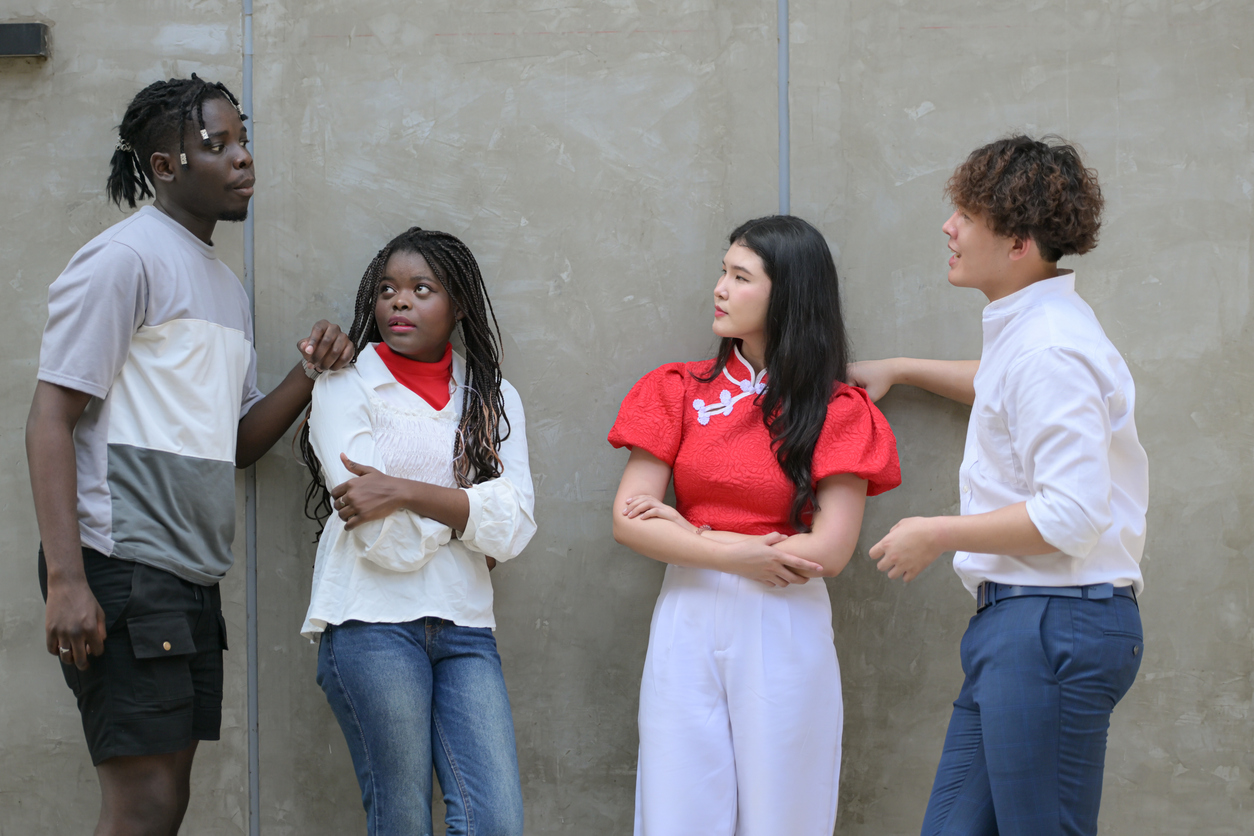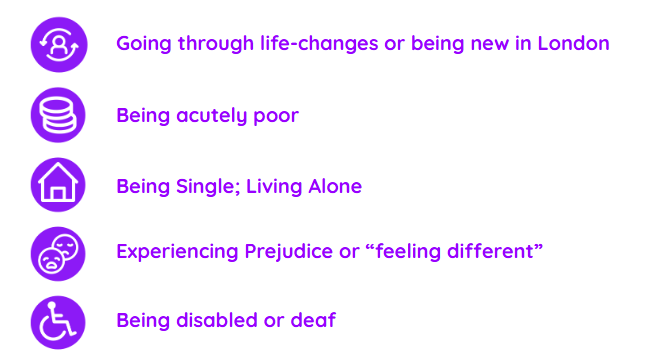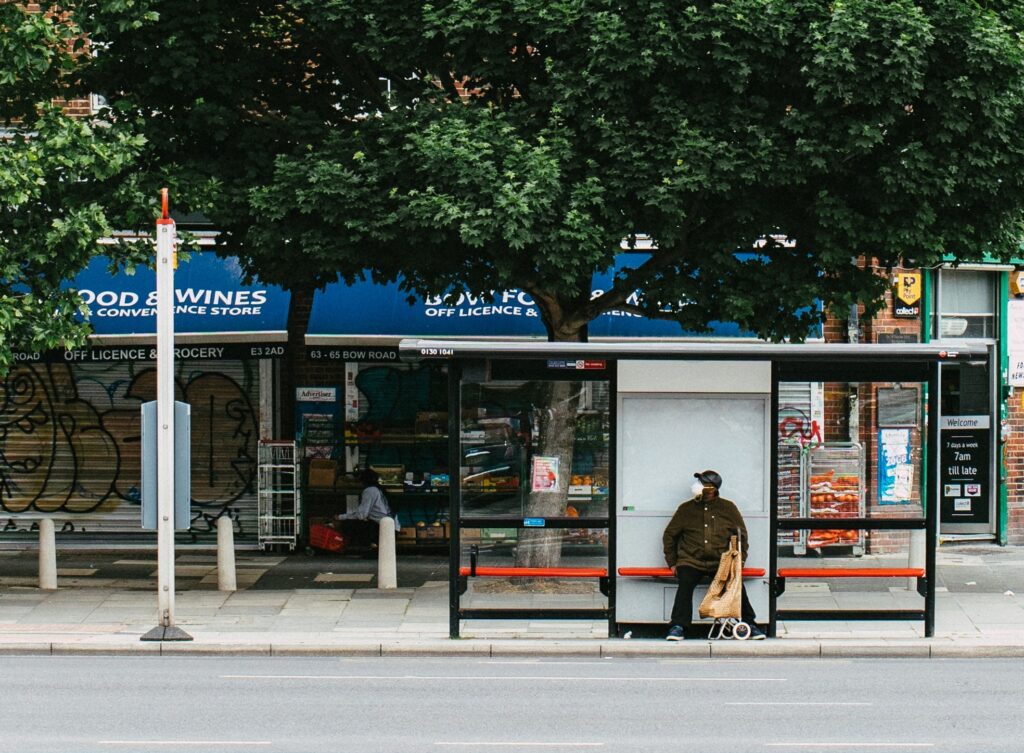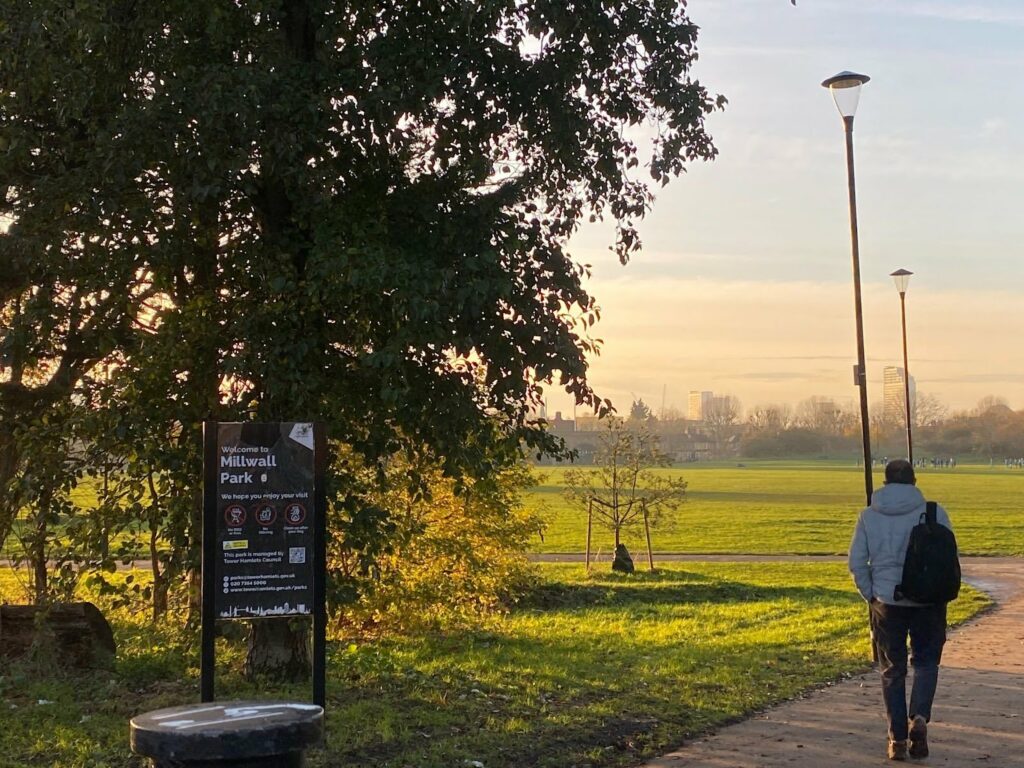Loneliness: What’s Race got to do with it?

By Harry Hobson, Director at Neighbourly Lab
Factors that cause people to experience loneliness.

At Neighbourly Lab we’re fascinated (obsessed even) by the factors that cause people to experience loneliness.
We know that it’s complicated, because loneliness is by definition for each of us; subjective, interior, personal and experienced differently. And with that, each incidence of severe loneliness is going to have a tangle of causes that range from psychological to cultural to circumstantial to structural and if that wasn’t complicated enough, the incidence of loneliness can be understood in terms of its causes, accelerants, absence of insulating or mitigating factors, plus possible constraints or barriers in getting help.
We deep-dived into these questions back in 2022, when the Greater London Authority (GLA) commissioned us, alongside the Campaign to End Loneliness, to produce a report that analysed the data in the ‘Survey of Londoners’, explaining why some Londoners appear more susceptible to loneliness. The Report “Reconceptualising Loneliness in London” revealed a useful list of the five main associative factors for Londoners – the main things that are likeliest to be true for the approximately 700,000,000 Londoners who are experiencing severe loneliness:

We’ve always wanted the chance to dig deeper into the fourth factor listed – ‘Feeling different or Experiencing Prejudice’.
From the ‘Survey of Londoners’, people who’ve been treated unfairly because of protected characteristics or class are 1.9x more likely to be severely lonely and regardless of race or protected-characteristics, people who disagree that London is “fair and meritocratic” are around 1.3x more likely to be severely lonely.
Last month, we had the opportunity to focus on this topic whilst we put together a grant application for Nuffield Foundation’s Racial Justice Fund. We’ll find out if we’re successful in securing funding in the Spring – we’re passionate about this topic and believe it’s one that deserves more exploration so we’re also ready to knock on other funders’ doors too.
We want to lay out for fellow Hub Members the research questions that we’re particularly wanting to focus on for this research bid, and invite you to get in touch to collaborate with us on this research programme.
Our hypothesis, which we want to unpack and test, is that:
‘People from ethnic minority communities experience higher levels of severe loneliness and face disproportionately worse outcomes due to intersectional challenges, such as racial exclusion, inequality to accessing healthcare and constraints on social mobility.’[1][2]
Past research suggests that people from ethnic minority communities are more likely to experience severe loneliness [1][3], and that experiences of prejudice and discrimination are some of the most significant predictors for loneliness [4]. However, this data is often drawn from a limited sample and relies on quantitative approaches that lack a textured understanding of the nuanced factors that contribute to this disparity [5]. With the growing population of ethnic minority communities in the UK [6], this disparity becomes ever more pressing to address.
Therefore, the questions we believe are most useful for the sector to get a clear answer to are:
Sparking Conversations about Race.
We were surprised how little debate or conversation about Race there has been on the Hub and how a small percentage of members on the hub declared a particular interest in the intersection of race and loneliness – less than 2% of the members at the point of joining the Hub, mention this as a primary area of interest.
Some of the particular questions and hypotheses we’re looking forward to exploring on the Hub are:
We were surprised how little debate or conversation about Race there has been on the Hub and how a small percentage of members on the Hub declared a particular interest in the intersection of race and loneliness – less than 2% of the members at the point of joining the Hub, mention this as a primary area of interest.
Some of the particular questions and hypotheses we’re looking forward to exploring on the Hub are:
- Is race a factor in susceptibility to becoming lonely, or is more a factor in getting help to alleviate loneliness?
Our hunch is that race probably plays a larger role in number two: structural inequalities (e.g. access to healthcare or help providing VCFOs) exert a negative effect. We’re of course keen to also hear about interventions that are specifically geared towards people from ethnic minority communities and to explore how and why they work.





Responses